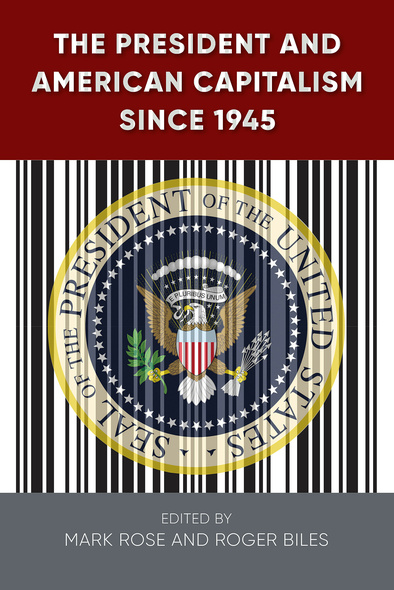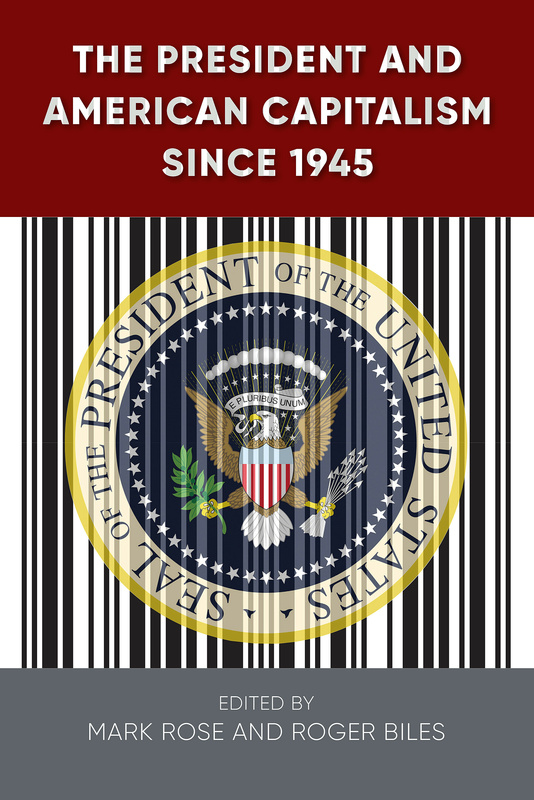Our shopping cart is currently down. To place an order, please contact our distributor, UTP Distribution, directly at utpbooks@utpress.utoronto.ca.
The President and American Capitalism since 1945
This volume describes the many ways presidential actions have affected the development of capitalism in the post-World War II era. Contributors show how, since Harry S. Truman took office in 1945, the American "Consumer-in-Chief" has exerted a decisive hand as well as behind-the-scenes influence on the national economy. And, by extension, on the everyday lives of Americans.
The Employment Act of 1946 expanded presidential responsibility to foster prosperity and grow the economy. However, the details and consequences of the president’s budget often remain obscured because of the budget’s size and complexity, perpetuating an illusion that presidents matter less than markets. Essays in this volume highlight the impact of presidential decisions on labor, gender discrimination, affirmative action, poverty, student loans, and retirement planning. They examine how a president can influence the credit card economy, the rebuilding of postindustrial cities, growth in the energy sector and the software industry, and even advances in genetic engineering. They also look at how economic gains in one particular area can have ramifications in other areas. National defense strategies have led to the privatization of weapons acquisition and the development of the modern research university to create a defensive brain trust among citizens. Policies aimed at supporting competitive American businesses—for example, in the biotech field—also affect the environment.
This book is an important contribution to the history of capitalism, articulating how the president—by supporting policies that promoted business growth in all sectors—has also helped domestic companies expand internationally and added to a global image of the United States that is deeply intertwined with its leading corporations.
Contributors: Brian Balogh | Roger Biles | Margaret O’Mara | Mark R. Wilson | Iwan Morgan | Brent Cebul | Elizabeth Tandy Shermer | Pamela Walker Laird | Allison Elias |Sean H. Vanatta | Andrew Meade McGee | Paula Gajewski | Tracy Neumann | Daniel Amsterdam | Gavin Benke | Bartow Elmore A volume in the Alan B. Larkin Series on the American Presidency
Thought-provoking. . . . The work collected here beautifully captures the vitality and importance of the field.’—Journal of American History
A fascinating look at how presidents have handled their economic responsibilities since World War II.'—Julian E. Zelizer, coeditor of What’s Good for Business: Business and American Politics since World War II 'A compelling case for the prominent role of presidents in the social and economic fabric of American life.'—Vicki Howard, author of From Main Street to Mall: The Rise and Fall of the American Department Store
Mark H. Rose, professor of history at Florida Atlantic University, is coauthor of Interstate: Highway Politics and Policy Since 1939. Roger Biles, professor of history emeritus at Illinois State University, is the author of The Fate of Cities: Urban America and the Federal Government, 1945-2000.





